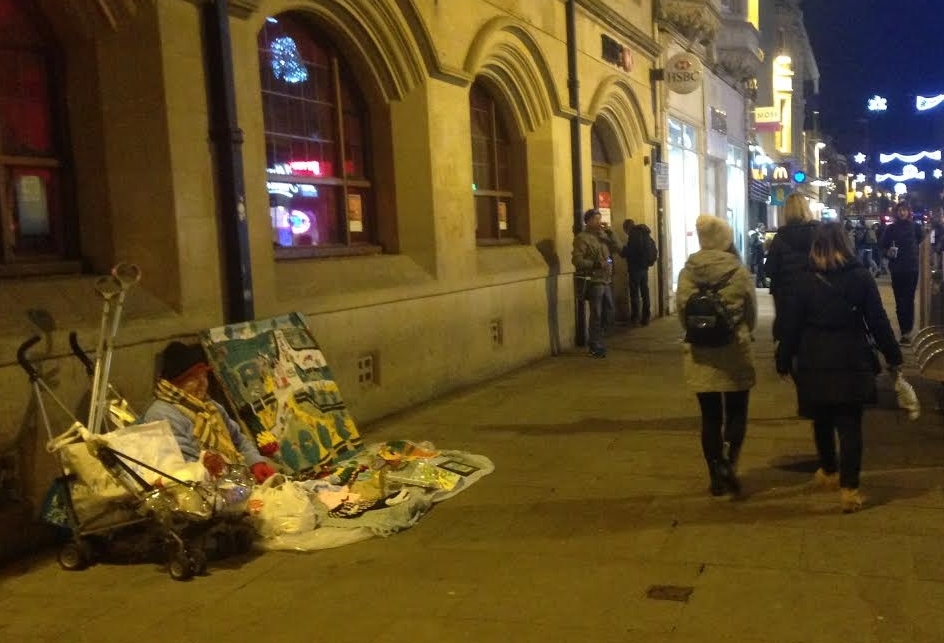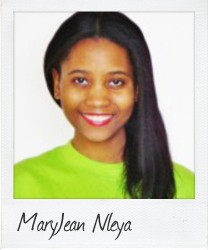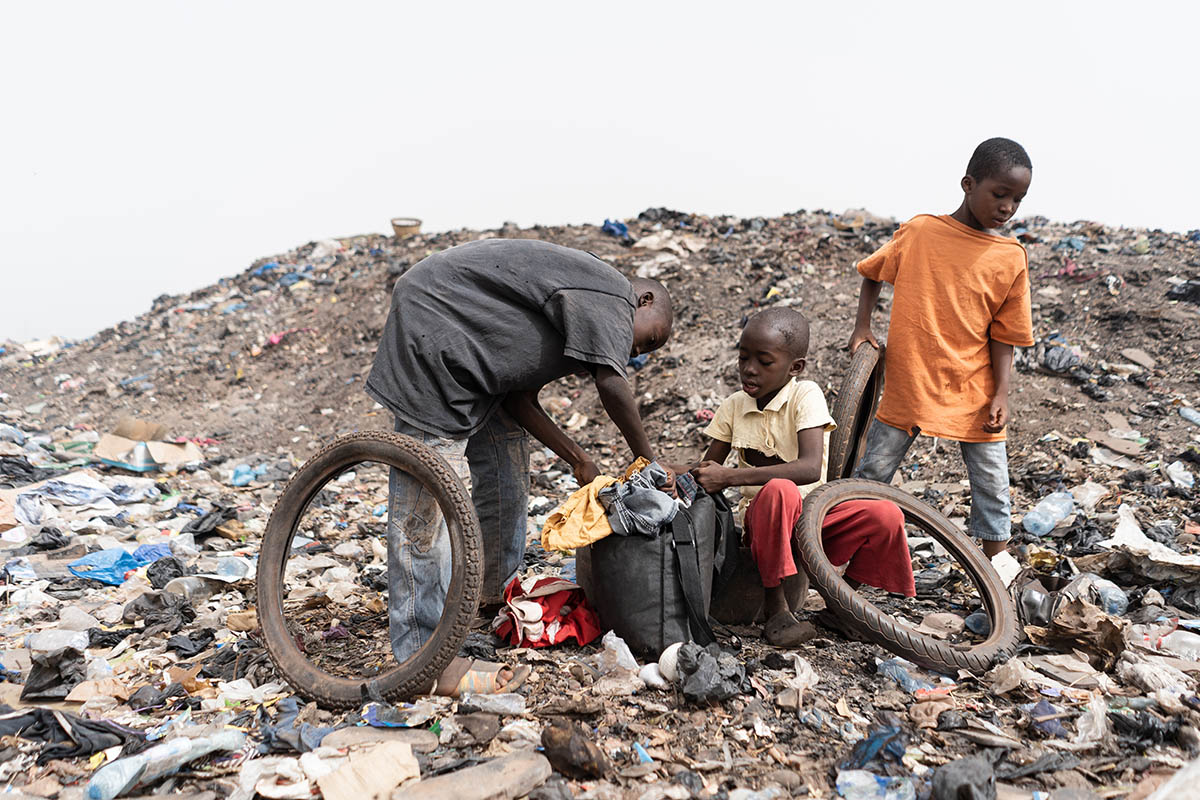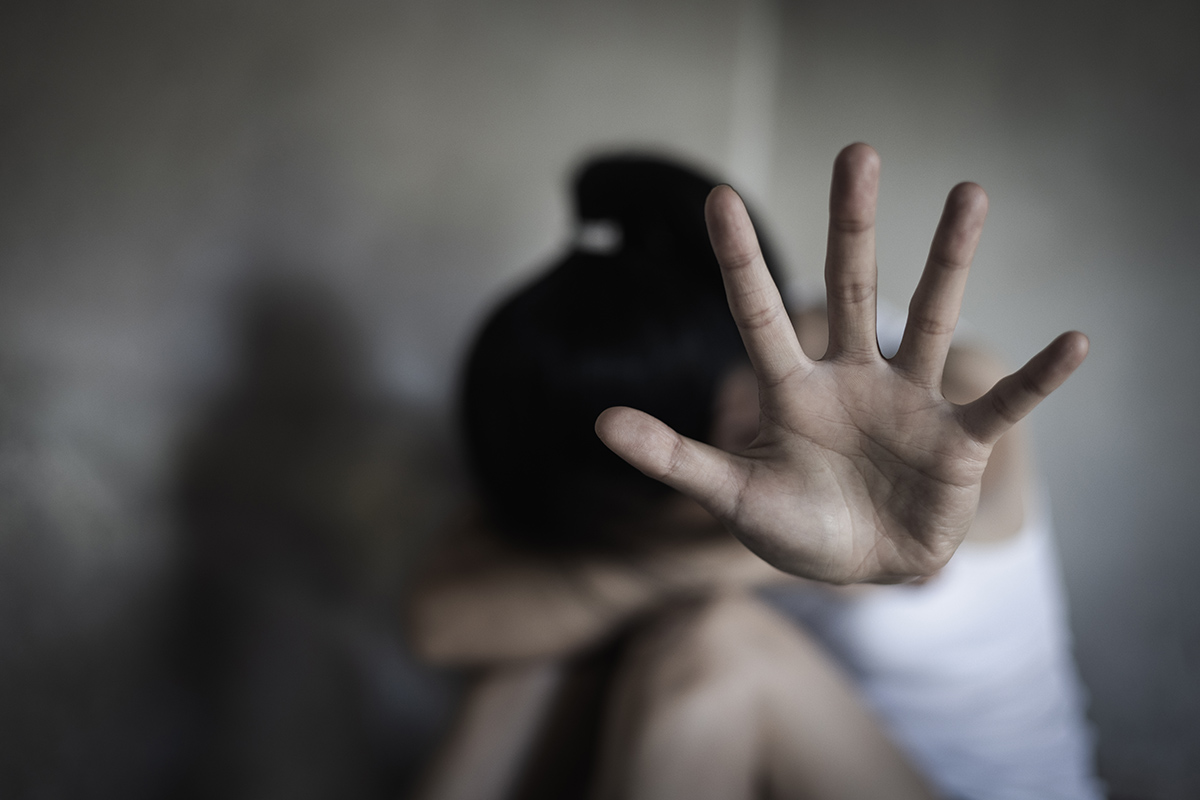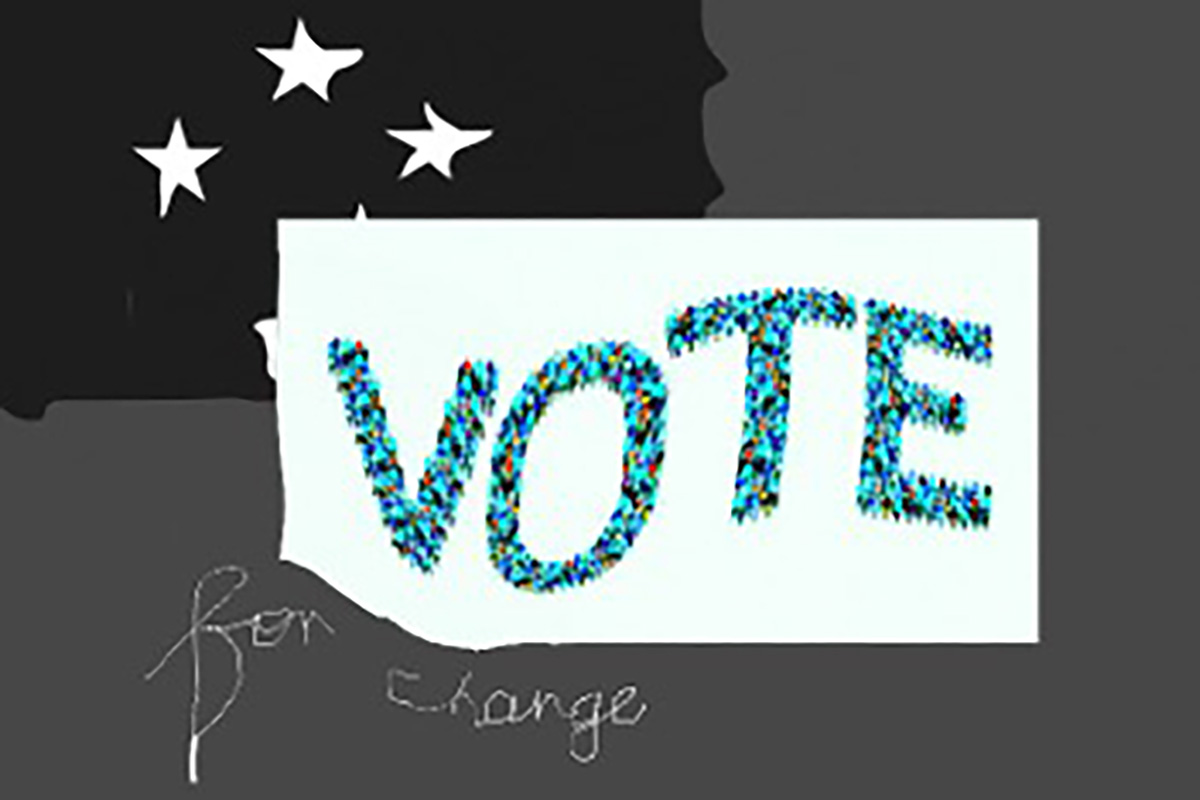“I am at the bottom of the pile, but all are equal”
January 9To help dismantle the silos that plague society’s civil discourse, Mary-Jean Nleya, 24, a Correspondent from Botswana, sat down with Ms. Carol – a woman who sits daily on an Oxford street – to learn about life at the grassroots level. Their discussion covered politics, art, business, the economy and mental health care.
Q: Hello. Please tell us your name and introduce yourself.
Carol: My name is Carol. I am a street artist – I make hats and draw pictures. I am at the bottom of the pile.
Q: Please elaborate what you mean by being “at the bottom of the pile” – are you homeless?
Carol: I’m on benefits and every day I sit here to make extra cash. I am not allowed to beg people for money in the streets or else I will get a £100 fine. Passers-by are the ones who come to me on their own terms to make donations. I do have a place I go to at the end of the day.
Q: And how is your art business doing?
Carol: It’s not a business. It’s my art. I cannot call it a business because I am not selling these items. I have no licence to actually sell them. I cannot afford a licence to sell these items. These items are my art. People passing by can simply make donations towards my art.
Q: Are passers-by generous and kind towards you?
Carol: You know, there are kind people around here. Someone today bought a chocolate gift pack and came over to give it to me as a Christmas gift – that was very kind. Another man earlier this week came with a stack of coins to give me. Others pass by and spare some change.
Q: Are you at all interested in current affairs and politics?
Carol: Nobody cares what I think. But I think politics is a lot of rubbish. They always do the opposite of what they say they will do.
Q: Why? What makes you say that?
Carol: They take from the poor. They’re not helping the poor. They took away my benefits.
Q: They took away your benefits? Do you mean to say you are currently not on any benefits?
Carol: Now, I am on benefits. They took away my carer allowance; but later then reinstated the benefits again. So, now I am on benefits.
Q: What do you think of politicians?
Carol: I don’t understand politicians. They don’t deal with real people. They live in a fantasy world … they deal with statistics and figures – that is not helping us.
Q: What were you supporting, ‘Brexit’ or ‘Bremain’?
Carol: I don’t think any of them affect me. I’ll survive Brexit.
Q: But if you were to choose, which of them do you support?
Carol: What I will say is this, if they cannot improve the way of life of people like me already inside the country, how are they going to help others coming in from outside? At the same time, I do understand people coming here for better opportunities – but that is where the conflict is. It’s too upsetting what’s happening in other parts of the world. But I think the media shows one side of things and I think there’s always another side of the story.
Q: What do you think of the 2016 US Elections and the results?
Carol: I think Trump acts up to the cameras. I don’t think he was to run as a candidate in the first place. But I think he might be a good president.
Q: What would you like to say to those in positions of power who can do something for you and people like you in your country?
Carol: I just want them to put money in the right places and not take carer benefits away at whim. Another thing is, mental health is a major problem among the homeless, and these people need to be taken care of. Other times, people say “these people are lazy, they can do this and they can do that”. But sometimes people just have mental health issues.
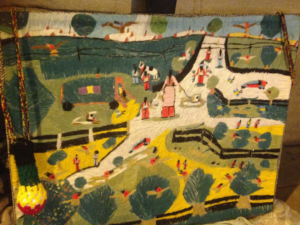 Q: What are your hopes and dreams?
Q: What are your hopes and dreams?
Carol: Money does not worry me. I am used to not having. I believe everybody is equal – those who have and those who don’t. But I want to be a part of society. I wish to be recognised as a proper artist and afford a selling licence so that I can get recognised and get a business going.
Q: Anything else you would like to say?
Carol: If I can survive, anybody else can.
In 2016’s political and civil discourse, especially the latter part of the year, there was much talk about ‘elites’, the ‘establishment’ and how the so-called ‘elites’ and those within the ‘establishment’ are far removed from the real problems faced by those at the grassroots level. This interview was conducted to gain a better understanding of what one of those at the grassroots was thinking and talking about.
Note: The interview and the images taken were done with the permission and consent of the interviewee. This article first appeared on The Global Communiqué
…………………………………………………………………………………………………………………
About me: I am a young African who has a keen interest in the intersection between law, the media and economic development.
I have conducted extensive research on legal adjudicative methods to promote women’s rights, sustainable economic development and the African Growth and Opportunity Act and its implications on various sub-Saharan African economies. I am a One Young World Ambassador and hold an LL.M. from Harvard Law School and a LL.B. (cum laude) from the University of Pretoria, South Africa.
…………………………………………………………………………………………………………………
Opinions expressed in this article are those of the author and do not necessarily represent the views of the Commonwealth Youth Programme. Articles are published in a spirit of dialogue, respect and understanding. If you disagree, why not submit a response?
To learn more about becoming a Commonwealth Correspondent please visit: http://www.yourcommonwealth.org/submit-articles/
…………………………………………………………………………………………………………………
